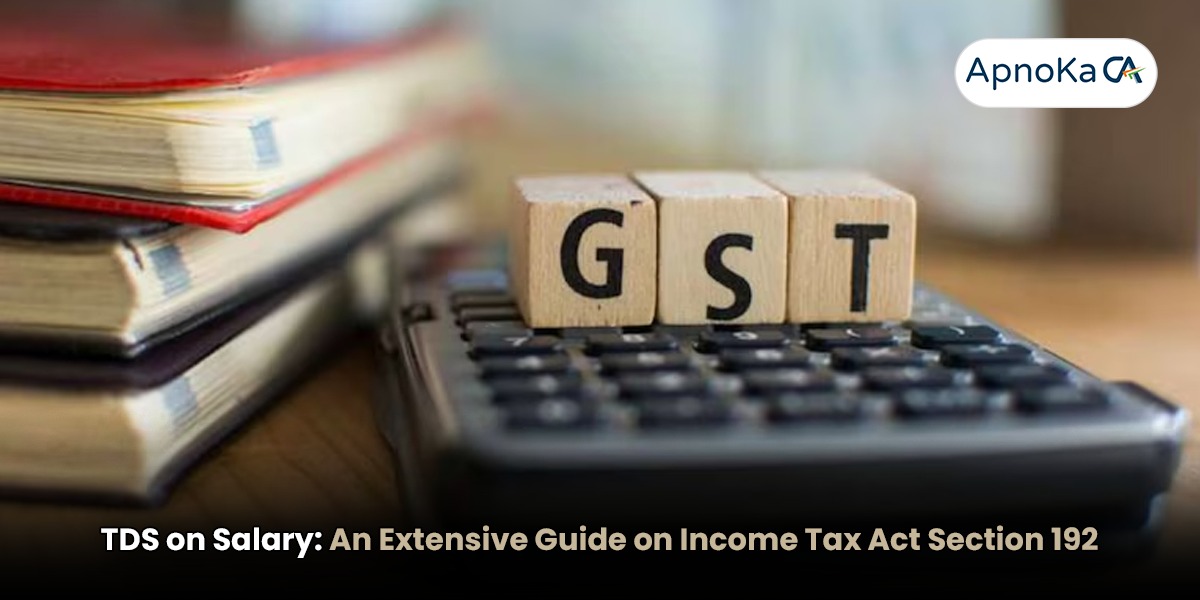# finance
12 posts in `finance` tag

Taxman Comes Knocking: High-Value Transactions in Focus
The Income Tax Department's heightened emphasis on high-value transactions is examined in this blog post. It looks at the motivations behind this decision, how it will affect people and businesses, and risk-reduction tactics.

Income Tax Reassessment Under Section 148A: Updated Schedules and Processes
The Finance Act, 2021, has introduced significant changes to the income tax reassessment provisions under Section 148A of the Income-tax Act, 1961. This blog post explains the new timelines and procedures for income tax reassessment, including the show-cause notice, taxpayer's response, and AO's decision.

GST Relief: Unlocking the Benefits of Section 128A for Taxpayers
The Union Budget 2024 has introduced a new Section 128A, offering relief to taxpayers with conditional waiver of interest and penalties for certain non-fraudulent GST claims. This blog provides a detailed guide to the amnesty provisions, benefits, limitations, and exclusions under Section 128A, helping taxpayers to understand and take advantage of the scheme.

Understanding Section 122(1) of the GST Act: A Complete Guide
This blog provides a detailed analysis of Section 122(1) of the GST Act, outlining the various offenses and penalties related to GST in India. It covers supply-related offenses, tax evasion, and non-compliance, as well as registration and documentation-related offenses.

Unlocking Section 10(13A) Benefits: An All-Inclusive Guide to House Rent Allowance (HRA)
This blog post provides a detailed guide to Section 10(13A) of the Income Tax Act, which allows salaried individuals to claim exemption on House Rent Allowance (HRA) received from their employers. The post covers the eligibility criteria, calculation, and documents required to avail this tax benefit, making it a valuable resource for individuals looking to optimize their tax planning.

Top Ten Amendments in India's Direct Tax System - Budget Proposal 2024–2025
The Budget Proposal 2024-25 has introduced several amendments to the direct tax regime in India. This blog provides a comprehensive guide to the top 10 amendments, including changes to standard deduction, angel tax, buyback tax, and more. Understand how these changes will impact you and plan your taxes accordingly.

The Standard Deduction in Budget 2024–2025: A Huge Relief
The Union Budget 2024-25 has brought a significant relief to taxpayers with the increase in the standard deduction. This blog post explains the implications of this change and how taxpayers can benefit from it. Learn how to claim the deduction and stay updated on the latest tax reforms.

Budget 2024 Highlights
In the 2024 budget, Finance Minister Nirmala Sitharaman introduced significant revisions to several critical tax sections, aimed at simplifying the tax regime and encouraging investment. Key changes include modifications to the angel tax provisions, Securities Transaction Tax (STT), Short-Term Capital Gains (STCG), Long-Term Capital Gains (LTCG), and adjustments to income tax slabs. These reforms are expected to have a substantial impact on taxpayers and investors, offering potential benefits and incentives for compliance and investment. This synopsis delves into the detailed changes and their implications for different stakeholders.

Understanding Depreciation under Section 32 of the Income Tax Act
This extensive blog explores the nuances of depreciation for Indian firms. Examining Section 32 of the Income Tax Act, it explains how business owners can lower their tax burden by deducting depreciation on a variety of assets. Important ideas including depreciation rates, computation techniques, and qualifying requirements are covered in the blog. It also emphasizes the advantages of depreciation claims and provides useful advice for companies to make sure they maximize tax efficiency while abiding by rule
.jpg)
Understanding Section 50B of the Income Tax Act: Slump Sale and Its Tax Implications
This blog provides an in-depth exploration of Section 50B of the Income Tax Act, focusing on the concept of slump sales. It explains the unique characteristics of slump sales, how capital gains are calculated, and the tax implications for both short-term and long-term gains. The blog also covers compliance requirements, exemptions, common misconceptions, and challenges, supported by real-life case studies. Essential for businesses and tax professionals, this guide aims to demystify Section 50B and provide clear insights into the taxation of slump sales.

Understanding Sections 194I and 194H of the Income Tax Act
This blog explores the details of Income Tax Act Sections 194I and 194H, clarifying the conditions for rent and commission payments that qualify for tax deduction at source (TDS). It addresses the following: application, rates, dates for deductions, deposit requirements, and the repercussions of noncompliance. It is imperative that taxpayers, business owners, and landlords who engage in commission transactions comprehend these parts to guarantee adherence to Indian tax regulations and prevent penalties. Continue reading to acquire a thorough grasp of TDS on commission and rent, along with useful examples and an overview of the main distinctions between the two parts.

Rebate Under Section 87A: Comprehending the Latest ITR Utility Change
This blog explains the recent update in the ITR utility regarding rebate under Section 87A. It explores the old and new rebate calculation methods, the potential impact of the change on your tax bill, and actionable steps to ensure accurate ITR filing despite the revised rebate mechanism.
